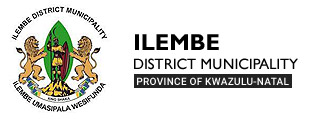Speaker of Council
Councillor Dolly Shandu
T The Local Government Municipal structures Acts Provides that each Municipal Council must have a Chairperson who is called the Speaker.
Cllr Dolly Shandu was elected to serve as the Municipal Speaker by the council from among the councillors at the first sitting of the council after the local government elections.
The speaker acts as a chairperson at the council meetings, and ensures the compliance of the Council Code of Conduct rules and orders…
Cllr Dolly Shandu ensures the proper functioning of the legislative side of the council, and it is required to be impartial. The Speaker also ensures community participation in legislative initiatives and communicates with the public on the performance of the Council.
Duties of the Municipal Speaker include the following:
- Presides at meetings of the Council;
- Performs the duties and exercises the powers delegated to the speaker by the Council
- Must ensure that the council meets at least quarterly;
- Must maintain order during meetings;
- Must ensure compliance in the council and council committees with the Code of Conduct for Councillors as set out in Schedule 1 of the Municipal Systems Act ; and
- Must ensure compliance in the council and council committees with the Code of Conduct for Councillors as set out in Schedule 1 of the Municipal Systems Act ; and
- Must ensure that council meetings are conducted in accordance with the Rules and Orders of the council.
In addition to the statutory functions listed the Office of the Speaker is also responsible for the functions listed hereunder:
- Encouraging participation of communities and community organisations in the decision-making process of the municipality
- Developing mechanisms to ensure and monitor participation of communities in the decision-making process;
- Ensuring that communities and community organizations are educated on their rights and responsibilities to participate and give input to the municipality’s policy development processes as well as planning and budget processes.
The Role of Traditional Leaders in Municipality
The Statutory functions of the Mayor as set out in sections 49 and 50 of the Structures Act are the following:
- Administer the affairs of the traditional community in accordance with customs and tradition;
- Assist, support and guide traditional leaders in the performance of their functions;
- Work together with municipalities in the identification of community needs;
- Facilitate the involvement of the traditional community in the development or amendment of the integrated development plan of a municipality in whose areas that community resides;
- Recommend, after consultation with the relevant Local House and the Provincial House of Traditional Leaders, appropriate interventions to government that will contribute to development and service delivery within the area of jurisdiction of the traditional council;
- Participate in the development of policy and legislation at local level;
- Participate in the development programmes of municipalities and of the provincial and national spheres of government;
- Promote the ideals of co-operative governance, integrated development planning, sustainable development and service delivery;
- Promote indigenous knowledge systems for sustainable development and disaster management;
- Alert any relevant municipality to any hazard or calamity that threatens the area of jurisdiction of the traditional council in question, or the well-being of people living in such area of jurisdiction, and to contribute to disaster management in general;
- Share information and co-operate with other traditional councils;
- Perform the functions conferred by customary law, customs and statutory law consistent with the Constitution.
- To uphold the values of the traditional community;
- Reject and proscribe such practices as the sowing of divisions based on tribalism;
- Promote peace and stability amongst members of traditional communities; and
- Promote social cohesion within the traditional community

